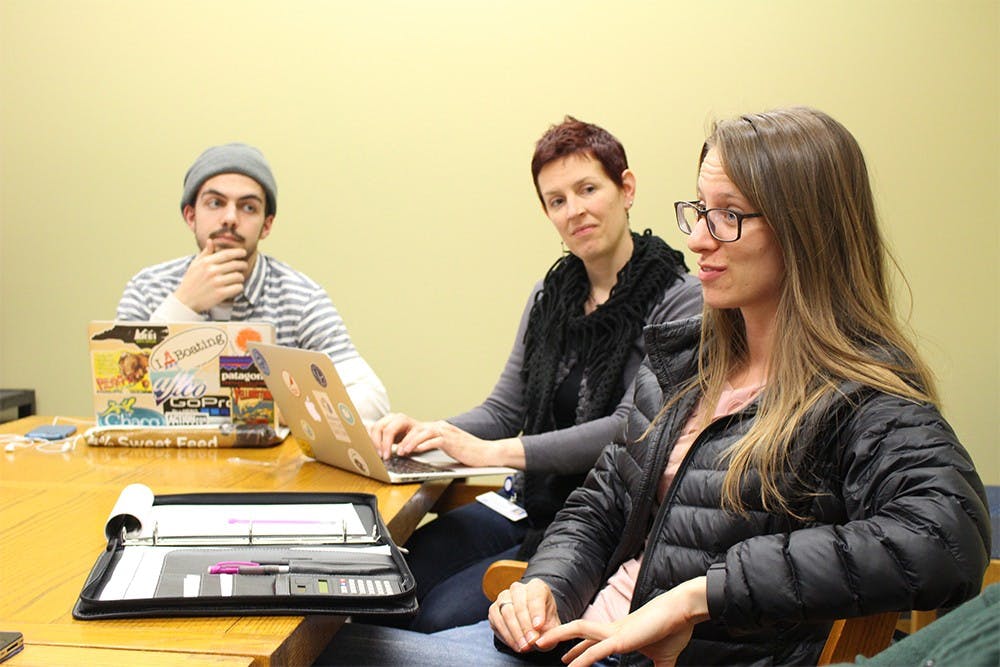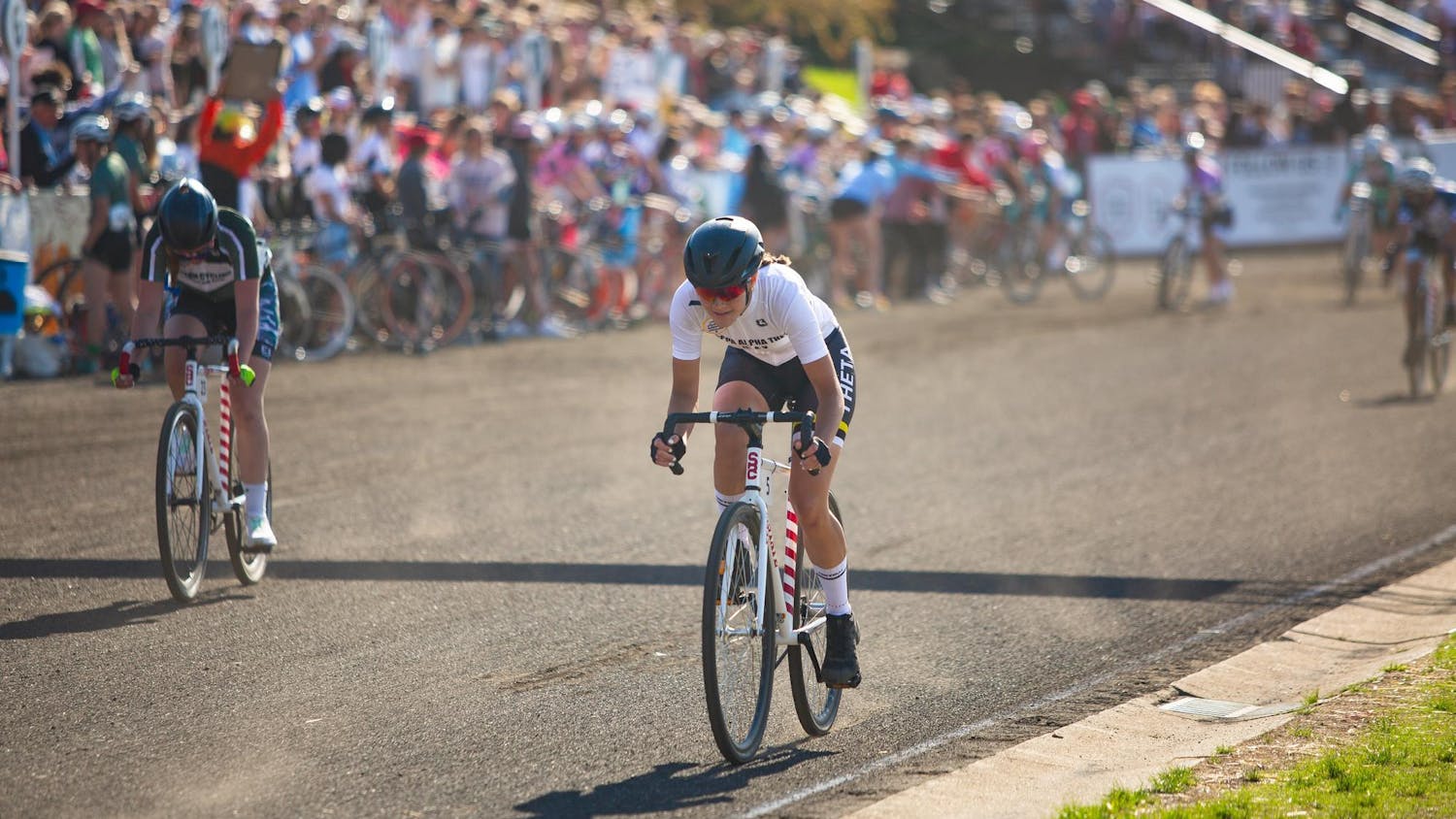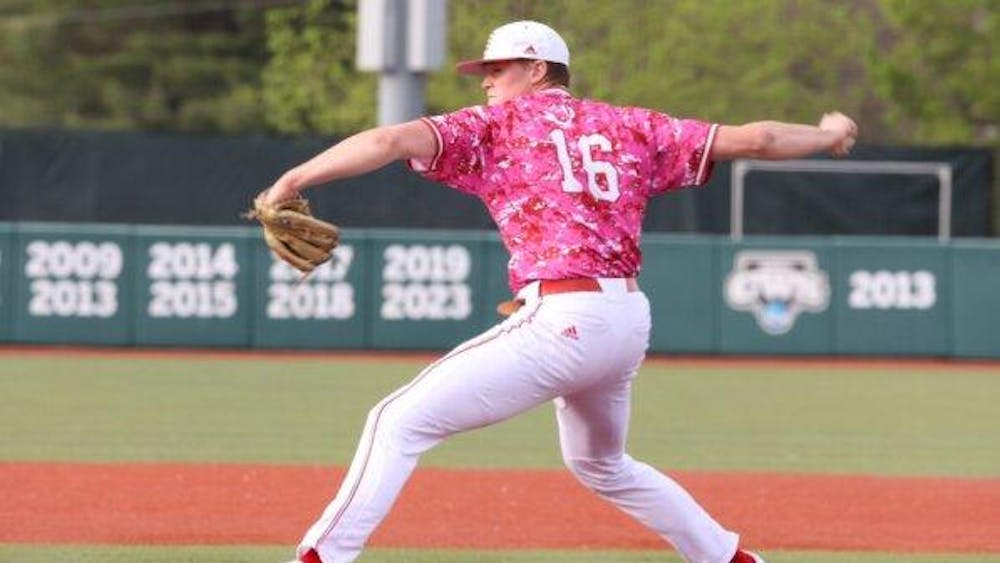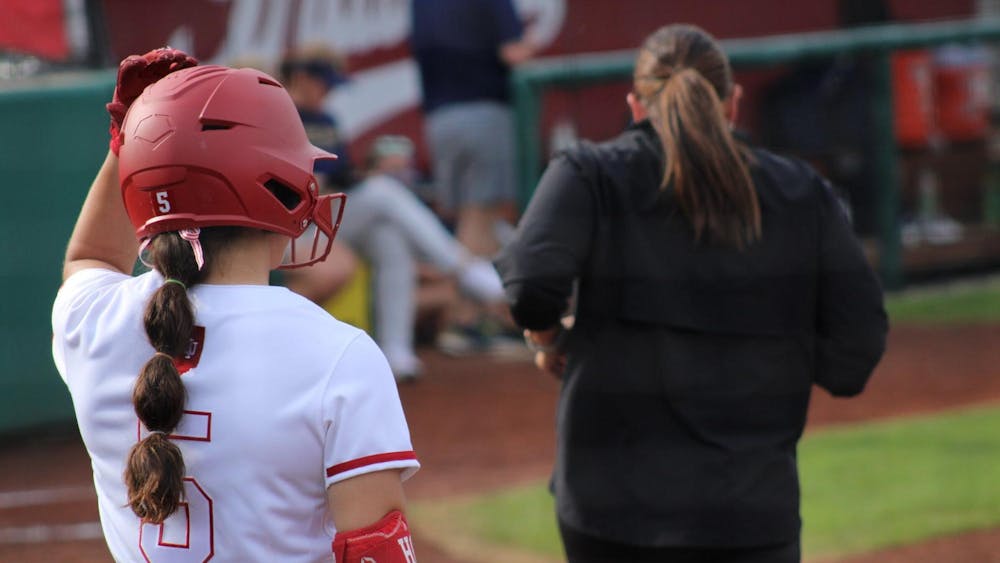On April 11, Bring Your Bag Bloomington members met to brainstorm ways to disseminate reuseable bags.
Their tools: a heap of cloth bags, social media and determination.
The environmental group, which tried to regulate plastic bag use in Bloomington to reduce litter, was set back by the passage of House Bill 1053, which prohibits any local government from doing so.
Sura Gail Tala, a BYBB member, has made 75 of a projected 250 bags out of discarded curtain cloth.
Tala sells some, but is looking for a way to buy reusable bags from a corporation like ChicoBag or Bagpodz to resell in Bloomington.
“I don’t even care if we make a profit,” Tala said. “I just want people to have them.”
A week before the meeting, BYBB co-founder Libby Gwynn contemplated Gov. Mike Pence’s decision to protect use of disposable containers.
“We tried,” she said. “We did a campaign to have people call and write to the governor to ask him to veto. But he didn’t, and we didn’t expect him to.”
The bill, signed March 23, prohibits local governments from restricting or placing a fee on the use of any disposable containers, including plastic bags and styrofoam.
Moving forward, any community change will all hinge on people’s decisions not to use plastic bags voluntarily, Gwynn said.
“A lot of people are resistant to being told what to do,” she said. “It was all about individual freedom, I think.”
The average American family brings home about 1,500 plastic bags every year, according to the Natural Resources Defense Council.
The ordinance BYBB wrote asked for a 15-cent fee added to shopping totals for plastic and paper bags for one year, after which plastic bags would be banned and paper bags would keep the fee.
Before the 2016 legislative session, BYBB reached out to former mayor Mark Kruzan and city council. The plan was to revisit the ordinance in January, Gwynn said.
Instead, the group watched as the legislation banning any city or county regulation passed quickly through the Indiana House and Senate and moved to Pence’s desk.
Rep. Ron Bacon, R-Chandler, authored HB 1053 in response to BYBB’s ordinance and others around the U.S.
He said he opposed community regulation precisely because it was not homogenous.
“If we want to ban it, we can ban it, but we have to do it together,” he said. “Come to the Statehouse, we’ll make a law and bring it up, and we’ll testify and see if we all want to do it together.”
Bacon said he worried about applying local ordinances to vistors.
“You’ve got a hodgepodge of laws throughout Indiana, then,” he said. “I would like less regulation.”
People may have trouble moving their groceries, clothing or restaurant meals home from a shopping center in another town, Bacon said.
“Banning it is not going to make a difference on this,” he said. “We need to push recycling on this.”
Andrea Jobe disagrees. She told BYBB about the plastic bags she routinely finds during creek cleanups off Barrington Drive.
“It is just scattered throughout our ecosystem,” said Jobe, an interior designer for RPS. “This group has really made me conscious of how big a problem it is. I can’t go on a walk with my dog without encountering five or six.”
On April 13, some BYBB members met with Mayor John Hamilton privately to float ideas to him about declaring a week or day free of plastic bags.
Jacqui Bauer, the City’s Sustainability Coordinator, also suggested that, as HB 1053 does not go into effect until July 1, the city council could still pass a resolution about plastic bags.
The resolution would be overturned by state law shortly afterward, but it would make a statement, Bauer said.
“It would be a way to say, ‘Here is what we’re going to do to reduce plastic bag waste in Bloomington,’” she said. “‘State laws be damned.’”
Gwynn emailed a council member who told her if the mayor backs a resolution, it could give it enough weight to make it through city council.
Mary Catherine Carmichael, the City’s interim communications officer, said the mayor supported BYBB’s grassroots efforts.
Hamilton thought plastic bag regulation should have remained a local choice, she said.
“The mayor is a huge environmental supporter and is deeply concerned,” she said.
HB 1053’s passage will leave it up to Bloomington residents to make a permanent, personal change.
“We can make it a grassroots effort, and maybe that will be better, to talk to people on a one-to-one basis,” Gwynn said. “That’s how people change, and people react very positively to that.”






